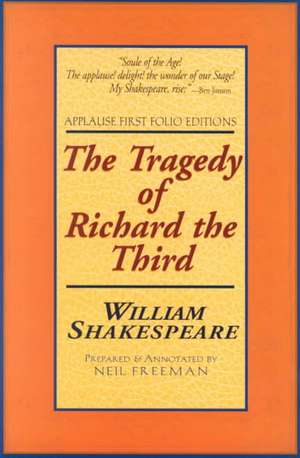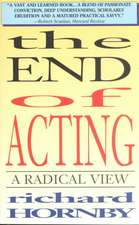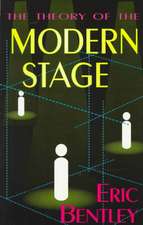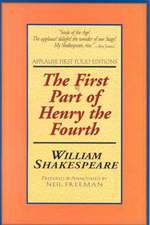The Tragedie of Richard the Third: Applause First Folio Editions: Folio Texts
Autor William Shakespeare Editat de Neil Freemanen Limba Engleză Paperback – 31 mai 2000
Preț: 117.54 lei
Nou
Puncte Express: 176
Preț estimativ în valută:
22.50€ • 24.45$ • 18.91£
22.50€ • 24.45$ • 18.91£
Carte disponibilă
Livrare economică 31 martie-14 aprilie
Preluare comenzi: 021 569.72.76
Specificații
ISBN-13: 9781557834225
ISBN-10: 1557834229
Pagini: 354
Dimensiuni: 151 x 229 x 20 mm
Greutate: 0.47 kg
Editura: Applause Books
Seria Folio Texts
ISBN-10: 1557834229
Pagini: 354
Dimensiuni: 151 x 229 x 20 mm
Greutate: 0.47 kg
Editura: Applause Books
Seria Folio Texts
Recenzii
"At last! A readable form of the original Folios. Invaluable to conceiving and creating one's own interpretation." -Richard Rose, Director, Stratford Festival"
Notă biografică
Venus and Adonis is a narrative poem by William Shakespeare published in 1593. It is probably Shakespeare's first publication.The poem tells the story of Venus, the goddess of Love of her unrequited love and of her attempted seduction of Adonis, an extremely handsome young man, who would rather go hunting. The poem is pastoral, and at times erotic, comic, and tragic. It contains discourses on the nature of love, and observations of nature.It is written in stanzas of six lines of iambic pentameter rhyming ABABCC although this verse form was known before Shakespeare's use, it is now commonly known as the Venus and Adonis stanza, after this poem. This form was also used by Edmund Spenser and Thomas Lodge. The poem consists of 199 stanzas or 1,194 lines.It was published originally as a quarto pamphlet and published with great care. It was probably printed using Shakespeare's fair copy. The printer was Richard Field, who, like Shakespeare, was from Stratford. Venus and Adonis appeared in print before any of Shakespeare's plays were published, but not before some of his plays had been acted on stage. It has certain qualities in common with A Midsummer Night's Dream, Romeo and Juliet, and Love's Labour's Lost. It was written when the London theatres were closed for a time due to the plague.The poem begins with a brief dedication to Shakespeare's patron, Henry Wriothesley, 3rd Earl of Southampton, in which the poet describes the poem as "the first heir of my invention".The poem is inspired by and based on stories found in the Metamorphoses, a narrative poem by the Latin poet, Ovid (43 BC - AD 17/18). Ovid's much briefer version of the tale occurs in book ten of his Metamorphoses. It differs greatly from Shakespeare's version. Ovid's Venus goes hunting with Adonis to please him, but otherwise is uninterested in the out-of-doors. She wears "tucked up" robes, worries about her complexion, and particularly hates dangerous wild animals. Shakespeare's Venus is a bit like a wild animal herself: she apparently goes naked, and is not interested in hunting, but only in making love to Adonis, offering her body to him in graphically explicit terms. In the end, she insists that the boar's killing of Adonis happened accidentally as the animal, impressed by the young hunter's beauty, gored him while trying to kiss him.



























